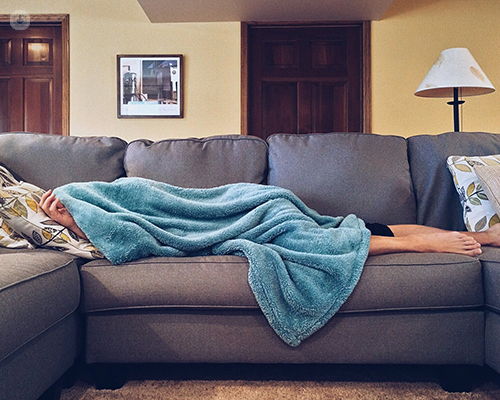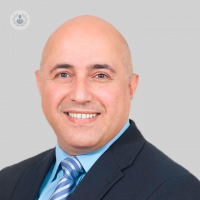Kidney stone pain: what does it feel like?
Escrito por:A kidney stone occurs when waste products in the blood occasionally become crystals that collect inside of your kidneys. These crystals may, in turn, form a hard stone-like lump. In cases of small kidney stones, you may not even notice if you have them, however, larger kidney stones can cause some rather unpleasant symptoms. Consultant urologist Mr Aza Mohammed explains what to expect and whether kidney stones can have a fatal outcome if left untreated…

How does kidney pain feel?
Kidney stone pain is highly variable. If the stone is within the kidney itself, it might not be associated with pain and could be incidentally discovered on imaging. Occasionally it could be in the form of dull pain in the loin. If the stone moves down the ureter it can be associated with severe loin pain typically described as renal colic.
The pain comes in waves and is usually associated with nausea and vomiting. The pain is caused by obstruction to the ureter, which results in the failure of the urine to drain beyond the stone with a subsequent increase in the pressure within the kidney.
How can I flush out kidney stones?
Ureteric stones can pass down the ureter depending on the stone size. It is generally accepted that, with smaller stones, the chance of spontaneous passage is greater. So for stones between 5-7mm, the spontaneous passage is in the region of 76%. The spontaneous passage is also dependant on the stone location with those in the lower part of the ureter at the time of presentation. This means it has a better chance of passage compared to those in the upper part of the ureter.
How are large kidney stones removed?
Kidney stones are removed surgically with two different methods. The first one involves the insertion of a fine telescope through the ureter into the kidney and breaks the stone with a laser. The stone will either be turned into dust or small fragment that will subsequently be washed. The other approach is to make a small cut in the skin and insert a sheath into the kidney and to the stone. The second procedure is usually reserved for larger stones.
Can kidney stones kill you? What's the worst case scenario?
Untreated stones can cause complications that can have deleterious effects. Infection in cases of the obstructed ureter can result in septicaemia if not treated. Kidney stones can damage the kidney as a result of recurrent infections and damage of the kidney substance. It is therefore recommended that kidney stones appropriately to prevent kidney damage.
Worried that you're experiencing kidney stone pain? Book an appointment with Mr Mohammed now for a consultation!


